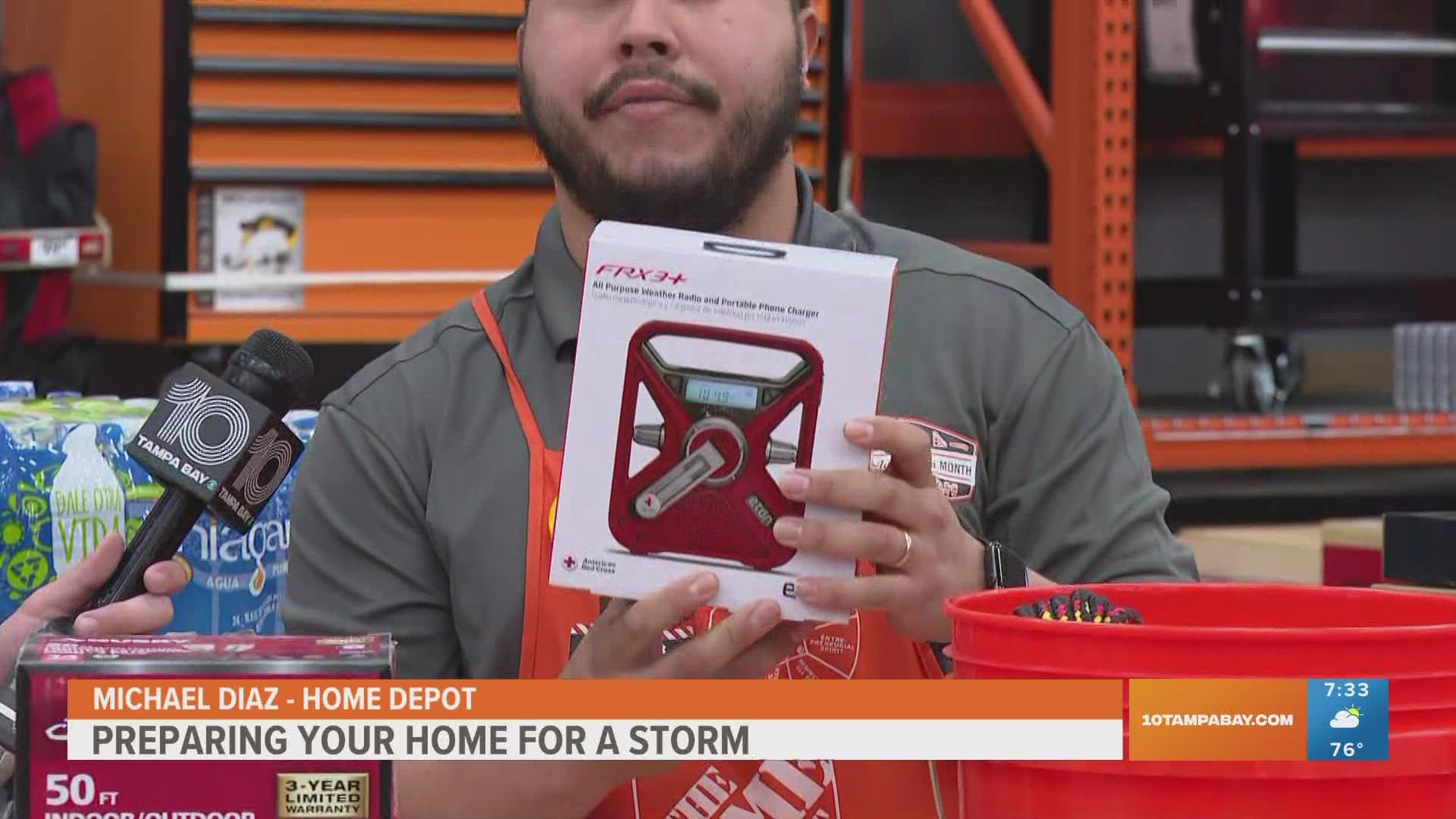FLORIDA, USA — With Hurricane Ian expected to hit Tampa Bay as soon as Wednesday evening, power outages are a possibility for many in the area.
With power outages comes an increase in people using generators. Along with that are the dangers that come with them. Here is a list of ways to keep safe when using a generator.
1. Keep the generator dry
It might be tempting to use a generator right after a storm hits but it's best to keep it off while the rain passes and dries up. Using a wet generator could lead to electrocution, according to the Red Cross. The Red Cross says it is best to use a generator on a dry surface. Do not touch a generator with wet hands.
2. Keep the generator outside
One of the most important things to know about owning a generator is knowing to run it outside. The Red Cross says to keep generators outdoors, away from doors, windows, and vents that could let carbon monoxide (CO) inside.
Installing a battery-operated CO detector in your home can help with potential poisonings.
3. Do not touch engine parts when the generator is on
Once the generator is on do not touch it. Touching an engine part while the generator is one can result in severe burns. If a generator needs a replacement or repairs it is best to contact a qualified technician, SECO Energy says.
SEO Energy says it is extremely important to keep children away from a running generator.
4. Check the cord before using
It is important to check the generator cords before using them. Generators are not used all the time, so wires can become damaged. SECO Energy says to replace any damaged cords with something heavy-duty. SECO Energy recommends testing out a generator before hurricane season.
5. Do not overload a generator
Overusing a generator can cause a fire. Plugging in too many cords can overwhelm the machine and damage it.
It is also important not to power the house wiring by plugging the generator into a wall outlet, the Red Cross says. This can known as "backfeeding" can put utility workers, neighbors and your household at risk for electrocution.

